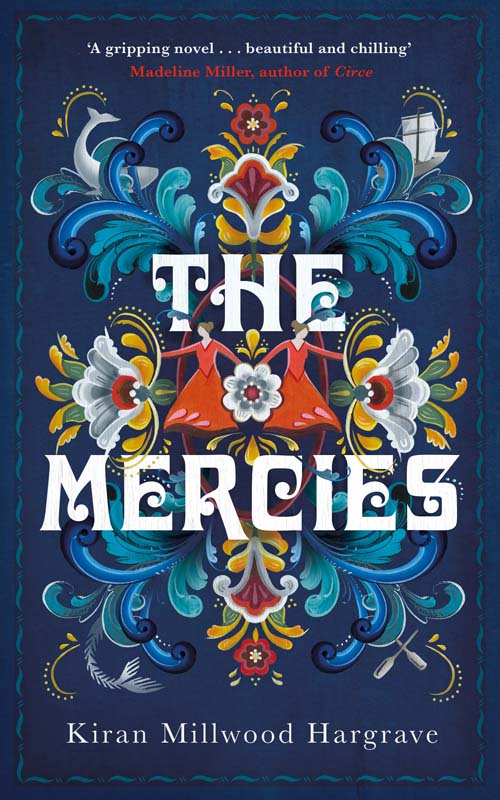Kiran Millwood Hargrave’s The Mercies is a tale of survival and the eventual disintegration of a community under threat from religious persecution.
In the 16th and 17th centuries, Europe was in the throes of a religious reckoning. Henry VIII’s breakaway from Catholicism and Martin Luther’s teachings that spread like wildfire throughout the continent created the atmosphere for puritanical purges, some taking place in Scandinavia. In The Mercies (Pan Macmillian), Kiran Millwood Hargrave takes this historically significant era and boils it down to its human essence, extracting from it an electrifying narrative.
The award-winning author set the tale in the village of Vardø, in remote north-eastern Norway, spanning the years 1617 to 1621. It begins with a terrible storm rising up from the sea, taking with it dozens of the village men. At the world’s edge, with scant resources, The Mercies details how the women of Vardø created a new reality from their circumstances and the terror set in train from the ill-fated Christmas Eve fishing expedition.
Amid the upheaval that has beset the village, the story focuses on Maren. Newly adult, she has lost her future husband, father and brother to the waves. As thick winter snow buries Vardø, despair and hunger take root among the nearly all-female survivors.
As the bodies of the forty men are eventually washed ashore, the women of the village find resolve, driven by the imperatives of survival. Led by the pugnacious Kirsten, the women set about completing all the tasks that had once been men’s work – even defying the waves and setting sail on the fishing boat.
The community becomes self-sustaining, but darkness is looming. The church (or ‘Kirke’) is the centre for community gatherings, and despite the fact they’ve proved beyond doubt they are capable of providing for themselves, a rift emerges among the women. There are some – ‘the Kirke women’ – who believe that the newfound capability is an affront to God, while others, Maren among them, find themselves questioning the relevance of the institution.
It’s a way of thinking that invites suspicion.
Secure in their survival – even amidst the harsh elements – this population devoid of men faces another threat: the authorities. Interspersed throughout the book’s chapters are the written correspondences between local and distant authorities and a plan is hatched to rid the outpost of witch threat, backed by royal decree. Commissioner Absalom Cornet is summoned for the task and he brings with him his new wife, Ursula.
The civil disagreement between the two camps of women within Vardø deepens into an unbridgeable chasm with the arrival of Cornet. The unlikely bond that develops between Maren and Ursa cuts against the sinister atmosphere that has blanketed the village – a tension that sets Vardø on an inexorable path toward tragedy.

Hargrave’s historically insightful exploration of witch hunts are not unique to fiction. But the deftly interwoven strands of feminism, love, tragedy and injustice make for a holistic and fresh interpretation of the events. The claustrophobia of Vardø is rendered exactingly in every interaction – the growing distance between Maren and her bereft mother, the mutual contempt between the ever-practical Kirsten and fundamentalist Toril, the visceral tension between Ursula and Absalom.
The narrative engine is driven with pace and economy, yet the prose remains lyrical. The village is tainted with injustice, marred with violence, but Millwood Hargrave’s treatment of dialogue and descriptions of the landscape speak to a place rich in vital relationships, between people, nature and their God.
Through a combination of prodigious skill and deep empathy, Kiran Millwood Hargrave is able to illuminate this bleak chapter in history, giving new life to this community at the edge of the known world.
The Mercies is available now via Pan Macmillan.



